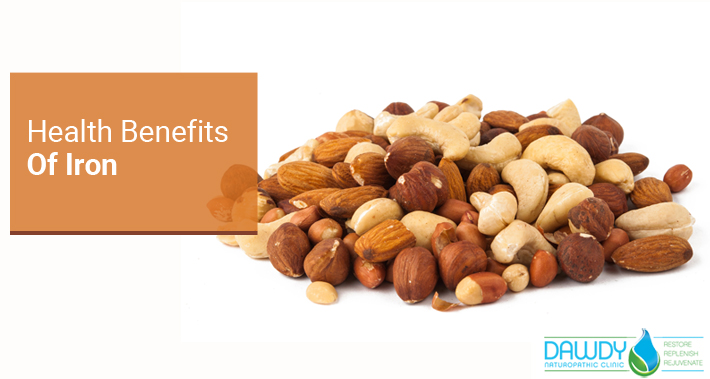Naturopathic Solutions For Heart Disease
Heart disease impacts over 1.3 million Canadians, and remains a leading cause of death in our country, despite decades of research, advanced treatments, and education.
One of our goals here at Dawdy Naturopathic is to help people to get and stay in the category of those who avert heart disease.
Did you know you can delay the onset for up to 14 years through good habits and lifestyle choices?
As a naturopathic doctor in Ottawa, we help the national capital region with many other conditions, including heart disease.
If you are at risk, or have been diagnosed, we can help you implement a plan to mitigate the onset or the effects of heart disease.
What Is Heart Disease?
“Heart disease” is actually a bit of a catch-all term for a number of different conditions that all affect your heart, blood vessels, valves, or anything else related to the cardiovascular system.
In fact, it is also known as “cardiovascular disease” and includes congenital conditions.
Your heart is a muscular organ that is a pump for your blood.
It has two sides to it, one which pumps out oxygen-rich blood, and one which receives oxygen-deprived blood.
Basically, your blood is an oxygen-delivery system, and your heart is what powers it all.
When your heart pumps blood through the pulmonary artery to your lungs, the oxygen is refreshed through your lungs, which then expel waste carbon dioxide.
It returns to your heart full of oxygen, routed through the left ventricle, and is pumped out to the body through your aorta.
This blood carries much-needed oxygen and nutrients to tissues throughout the body.
Different Types Of Heart Disease
As we mentioned, ‘heart disease’ is a generic name for different diseases that all center around and affect the cardiovascular system.
Let’s have a look at what these are:
Atherosclerosis
Atherosclerosis is the buildup of fats and cholesterol on your arteries, which restricts blood flow.
The buildup is known as plaque, and it develops slowly over time.
It could even begin in early childhood, and may start as a result of damage to the artery.
The cause might be smoking, diabetes or obesity, inflammation from another disease or unknown cause, or it might be caused by high blood pressure.
Symptoms will depend on the artery that is affected, and especially on the severity, but could include:
- Chest pain
- Leg pain while walking
- High blood pressure or kidney failure
- Numbness or weakness in limbs
- Difficulty speaking / slurred speech
- Temporary loss of vision in one eye
- Drooping facial muscles
Very often, symptoms only present when an artery is so narrow that it can’t get enough blood to your tissues and organs.
A clot can block blood flow entirely, or if it breaks and travels, it can result in a stroke or heart attack.
Congenital Heart Defects
“Congenital” is another way to say “something you’re born with”.
These defects developed in utero, often early in gestation when the heart very first begins to develop.
The defect could be simply genetic, or it could be due to a medical condition of the mother’s, or medication she is taking.
Severe defects usually present shortly after birth, while less serious issues may not become apparent until later in life, as the heart grows and develops.
In infants, look out for cyanosis, shortness of breath, poor weight gain and swelling around the eyes, abdomen or legs.
Valvular Heart Disease
Valvular heart disease can be congenital, or it can be a result of damage caused by an infection, rheumatic fever, or a connective tissue disorder.
It occurs when the valves in your heart that open and close grow narrow, leak, or don’t close properly at all.
Symptoms will depend on which of the four valves isn’t working properly, as they all have their own function and affect different areas of the body.
However, symptoms generally include:
- Chest pain
- Irregular heartbeat
- Shortness of breath
- Fatigue
- Fainting
- Swelling in the feet or ankles
Heart Arrhythmias
Arrhythmia is an abnormal rhythm – so when you have a heart arrhythmia, it’s when your heart is beating at an irregular pace.
Tachycarida and bradycardia are two different types of arrhythmia – the first is too quick, and the latter too slow.
This is sometimes caused by a congenital defect, but it can also be caused by lifestyle.
It can also be a result of another condition, including diabetes, high blood pressure or coronary artery disease.
If you’re experiencing arrhythmia, it could also be caused by a medication, herbal remedy or dietary supplement.
Symptoms of heart arrhythmia include:
- Chest pain or discomfort
- Shortness of breath
- Fluttering in your chest
- Lightheadedness / dizziness
- Fainting
Heart Infections
Endocarditis is an infection in the inner membrane of the heart, and is usually caused by an irritant.
Doctors will investigate by checking for a chemical, parasite, bacterium or virus in order to determine if this is the case.
Symptoms of a heart infection include:
- Shortness of breath or a persistent cough
- Changes in your heartbeat
- Weakness and fatigue
- Swelling in the abdomen or legs
- Fever
Dilated Cardiomyopathy
Cardiomyopathy is an enlarging or thickening of the heart muscle.
There are different types of cardiomyopathy.
Dilated cardiomyopathy is the most common, but the cause has not been determined as yet – it could be genetic or be a result of ischemic heart disease.
Hypertrophic cardiomyopathy is usually genetic, but can also be a result of aging or high blood pressure.
With restrictive cardiomyopathy, there is no known reason.
This is the least common of the types.
Cardiomyopathy is difficult to diagnose in its early stages, because there are few symptoms, which only develop as the disease progresses in severity.
Symptoms include:
- Irregular, rapid, pounding, or fluttering heartbeat
- Difficulty breathing
- Fatigue
- Dizziness, fainting or lightheadedness
- Swelling around the ankles, feet or legs
Risk Factors For Heart Disease
With heart disease, the most common factor is a combination of stuff you can’t control – age, sex, genetics – with a lot of factors you CAN control: your lifestyle.
Heart disease can be mitigated successfully with the following behaviours:
- No smoking
- Eating properly: forget foods that are high in sugar, salt, fat
- Physical activity: obesity is a big risk factor, so stay moving
- Stress: it can damage arteries and more
- Hygiene: washing your hands frequently plus good dental health are key
Other conditions that contribute:
- Diabetes: treat underlying conditions, and mange it appropriately
- High blood pressure
- High blood cholesterol levels
- Cancer therapies: chemotherapy and radiation therapy
A Naturopathic Approach To Heart Disease
It’s important to ensure you’re getting the right help for your heart disease.
You may need surgery or prescription drugs to manage your condition, or it may be entirely genetic and not curable.
However, there are ways to manage the controllable factors better, and other ways to mitigate symptoms.
1. First, Clean Up Your Lifestyle
You saw the list under risk factors, and here’s where we do a deep dive into any habits that might be contributing to your heart disease.
The good news is that we will help you implement the changes you need to.
Each one of these factors would have its own mini-plan for treatment, and all accomplished with your input.
Certainly, smoking would be one of the first ones to treat, which can be done with natural therapies or with help from Traditional Chinese Medicine (such as acupuncture).
Diet is another important issue, because reducing sugar, salt and saturated fat contributes to a healthy weight and other beneficial side effects that – in turn – benefit your heart health.
Either reducing or better management of stress will also be important.
Lastly, engaging in at least 30 minutes of activity per day not only keeps the weight managed, but ensures your cardiovascular system gets a bit of a workout.
2. Coenzyme Q10
Coenzyme Q10 – aka CoQ10 – is found in every cell in your body.
It is used to produce energy that your body uses for cell growth.
It also protects your body from harm with its antioxidant properties.
Coenzyme Q10 is taken to protect heart from failure, as well as to speed up recovery from exercise.
Coenzyme Q10 comes in supplement form, but can also be found in high levels in organ meats, sardines, mackerel, soy oil, peanuts and beef.
3. Magnesium
If you’re looking for a predictor of heart disease, the best you’ll get is your magnesium levels.
Low magnesium can adversely affect high blood pressure, cholesterol, arterial plaque build-up, or calcification of soft tissues in your cardiovascular system.
If you have kidney disease, you’ll need to be cautious – speak to your healthcare provider before taking anything over the counter.
4. Garlic
Garlic has many uses, on top of making your dinner delicious.
However, garlic can also be taken as a supplement –as an aid for treating high blood pressure.
Note that garlic can affect your blood clotting, putting you at a higher risk of bleeding after dental work or a medical procedure, so be sure to speak to a medical professional before starting supplements on your own.
5. Green Tea
Green tea has been a favourite in the far east for thousands of years, and has been touted as a remedy for many conditions or issues.
However, in regards to heart disease, some studies show that it can be helpful in treating cholesterol.
It’s effective not just on LDL cholesterol, but total cholesterol levels.
Book An Appointment With Dawdy Naturopathic
Call now to book your appointment with Dawdy Naturopathic, so we can better understand the conditions and symptoms you are dealing with.
If you’re looking for focused attention on your issue and you want a plan that someone works on with you, you may be looking for a naturopathic doctor.
We ensure our patients get full attention and engagement so that they can feel supported in their health journey from start to finish.
Yours in Health,
Dr. Kimberly Dawdy, ND
Dawdy Naturopathic Clinic
6899 Sunset Blvd,
Greely, ON K4P 1C5
-https://g.page/dawdynaturopathicclinic
Dawdy Naturopathic Clinic offers a variety of naturopathic health solutions for individuals and families in Ottawa and the surrounding area.





